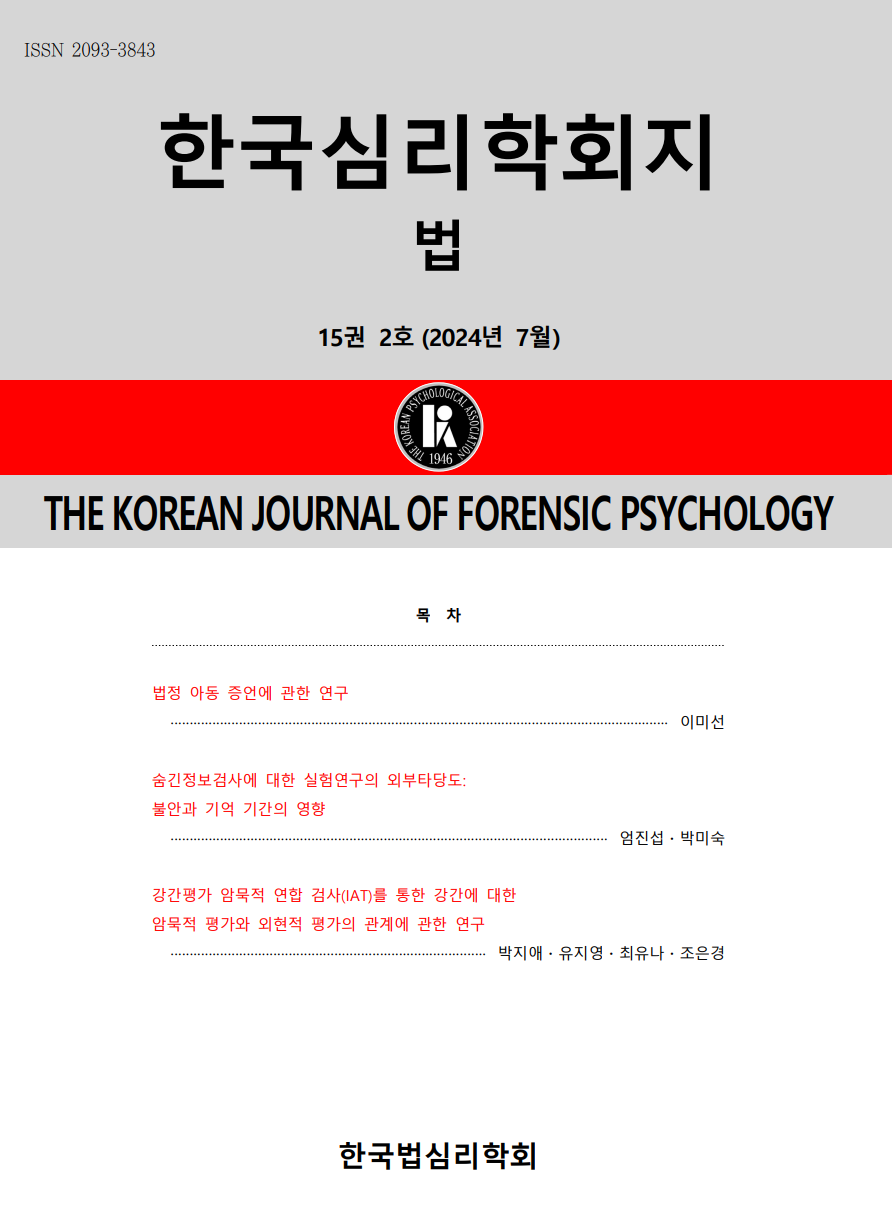open access
메뉴
open access
메뉴 ISSN : 2093-3843
ISSN : 2093-3843

This study was conducted to find out the difference in judgment of murder cases by participants’ generation according to the type of murder. 196 adults in their 20s and older were randomly assigned to one of the scenarios of parricide, filicide, and murder, then responded to the judgment(ex. judgment of the perpetrator, degree of deviation from social norms, and judgment of victim responsibility). Finally, 128 responses were used in the analysis. As a result, it was found that the main effect of the murder type and the interaction effect of the generation and the murder type were not shown in all dependent variables. However, the difference between generations was statistically significant in the judgment of the perpetrator (e.g., perpetrator blame, perpetrator responsibility, intentional crime, etc.), indicating that millennials made unfavorable judgments to the perpetrator. Especially, in the case of parricide, it was found that millennials made unfavorable judgments to perpetrators than older generations. Also, it was found that the participants of the older generation tended to make unfavorable judgments toward the perpetrator of murder rather than the perpetrator of parricide. Finally, based on these results, this study proposed the need to reconsider the ‘victim of survivors’ factor, which is considered as a weighing of an offense for special sentencing factors.